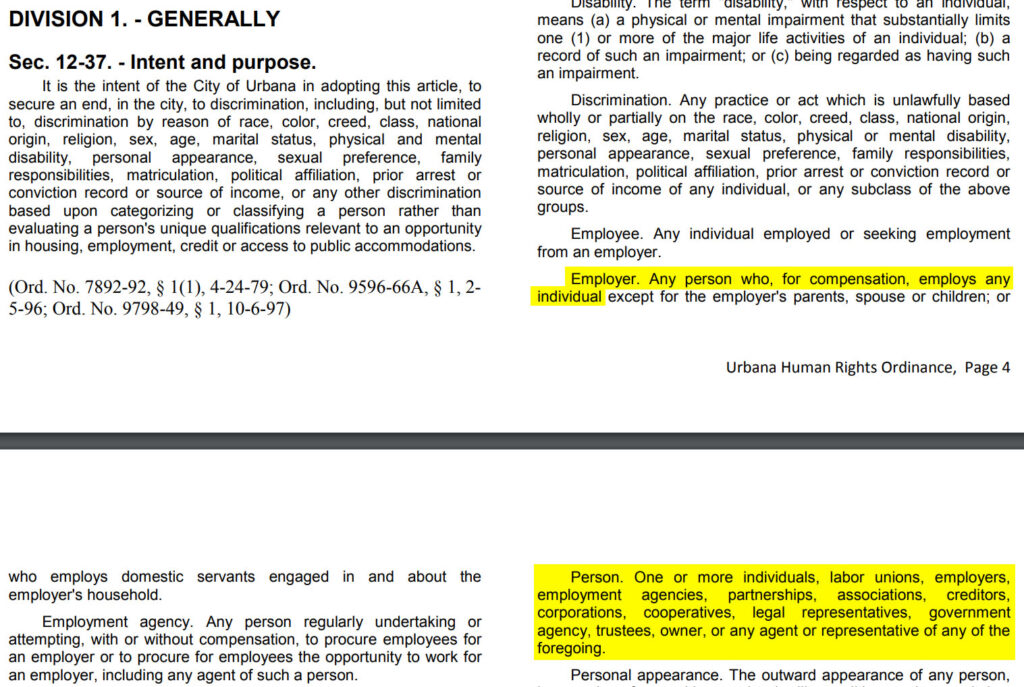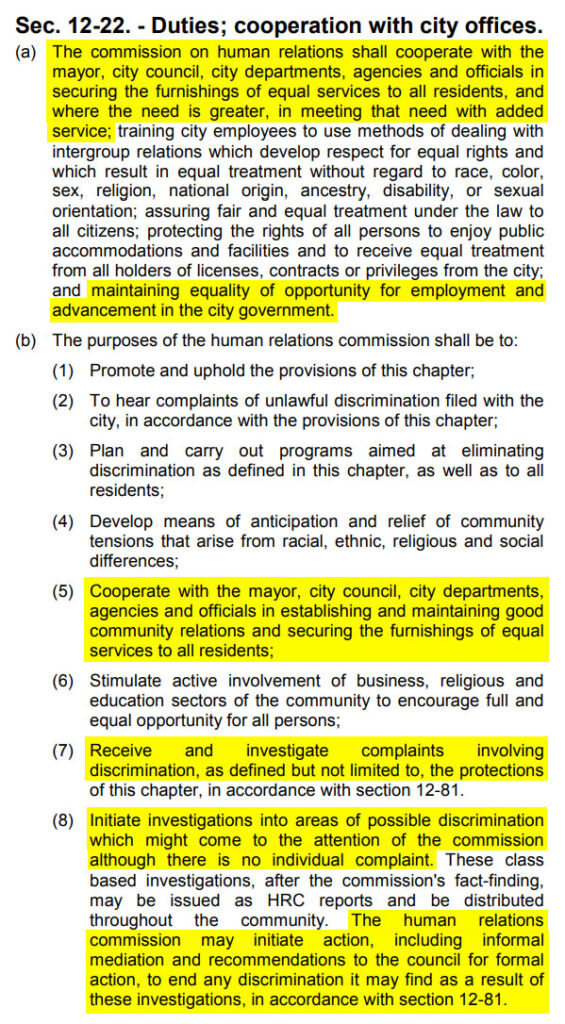
Urbana City Attorney James Simon, for the second time this year, has claimed that Urbana’s human rights laws do not apply to the City of Urbana itself. In other words, Urbana City employees, as well as elected and appointed officials, are allowed to discriminate against people for virtually any reason in regards to hiring and provision of City services to residents.
Simon claims that the Human Rights Ordinance, which would prevent individuals and businesses from discriminating in regards to employment, housing, and public accommodations, does not apply to any action by the City or its employees or elected and appointed officials.
Simon has made this determination upon a human rights complaint that I submitted myself on September 14th, 2020. My complaint was simple, and it alleged that the members of the Urbana Civil Service Commission (CSC) and associated City staff (Marion Knight Jr., Tom Betz, Traci E. Nally, Elizabeth Borman, and Elizabeth Hannan) violated the Urbana Human Rights Ordinance by discriminating against potential employees on the basis of their criminal record. Discrimination on the basis of “prior arrest of conviction record” is specifically prohibited in Urbana’s Human Rights Ordinance, and the CSC created and circulated multiple City job descriptions requiring applicants to pass a criminal background check.
My complaint and attachments, as well as Simon’s determination letter, can be seen here:
2020-09-14 Urbana Human Rights Complaint on Knight, Betz, Nally, Borman, Hannan_redacted
James Simon Determination on Urbana Human Rights Complaint on Knight, Betz, Nally, Borman, Hannan
Simon claims that employees of the City of Urbana, as well as appointed officials, are not bound by the Human Rights Ordinance, but the ordinance definition quite readily dispense with that claim. The ordinance defines an “employer” as “any person who, for compensation, employs any individual” and it defines “person” as “one or more individuals, labor unions, employers, employment agencies, partnerships, associations, creditors, corporations, cooperatives, legal representatives, government agency, trustees, owner, or any agent or representative of any of the foregoing.”

The obligation of the Human Relations Commission to oversee fair and non-discriminatory hiring of City employees is also written very literally into their ordinance. The ordinance also makes very clear that the types of discrimination and resulting complaints are not to be bound by the ordinance descriptions, but casts a very wide net for all types of complaints.

Simon also claims that my complaint lacks probable cause, because I did not allege that I was personally victim to the discrimination, and that a discriminatory statement on a job requirements circulation does not prove that someone actually discriminated. Being victim to discrimination is not listed as a requirement in the Human Rights Ordinance. In fact, the Ordinance allows for the Commission to activate a complaint without there even being a complainant. Before filing my complaint, I did check with the Chair of the Urban Human Relations Commission, Frances Rigberg on the exact issue of placing a criminal background check requirement on a job circulation:
Frances Rigberg: “it seems to me that putting that requirement in an ad is meant to and would in fact discourage people with a record, and this is against the spirit if not the letter of the Ordinance and likely would not stand. We’re having the same problem with housing ads, and along with Danielle, we are working on it. It’s wrong on the face of it.”
I find it impressive that the Chair of the Human Relations Commission finds it to be a very likely violation, whereas James Simon won’t even admit that there is enough probably cause to investigate the issue.
I have appealed Simon’s determination and there should be a public hearing on this issue soon.
-Christopher Hansen, Urbana
